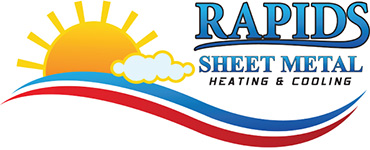
To combat increasing energy expenses and embrace sustainability, many homeowners are looking for ways to enjoy the same standards of comfort while reducing utility bills. With help from the Inflation Reduction Act, federal tax credits are available for high efficiency HVAC equipment. These credits offer big savings, as long as the homeowners use eligible equipment and submit the right paperwork.
If you’re worried about a long, complicated process, we can share something that will help! Rapids Sheet Metal Works Inc hopes this guide will give you what you need to secure 2024’s HVAC tax credits. Here’s what you should know.
How Do These Tax Credits Work?
These valuable tax credits for boosting your home’s energy efficiency are just one intended use of the recent Inflation Reduction Act. With the higher cost of energy making an impact, helping more homeowners upgrade their equipment is always beneficial. The primary goal of these credits is to reduce the cost of installing high efficiency upgrades. Two of note are the Residential Clean Energy Credit and the Energy Efficiency Home Improvement Credit.
However, to claim your credits, you’ll need a completed IRS Form 5695. Additionally, this form is submitted for the same tax year your upgrades were installed, not bought.
Maximizing Savings with the Energy Efficiency Home Improvement Credit
Through 2032, the Energy Efficiency Home Improvement Credit provides up to $3,200 each year for installing higher efficiency home upgrades. This amounts to 30% of the total project’s cost. Keep in mind that in order to be eligible for the maximum amount, it involves making different investments. For example, you’ll receive up to $2,000 for installing a higher efficiency heat pump. This can be combined with the remaining $1,200 in credits for other eligible upgrades made within the tax year.
While new heat pump systems are a key target for this incentive, high-efficiency furnaces, air conditioners, boilers, and other HVAC systems are still eligible for this tax credit. You’ll need to confirm that your choice’s energy efficiency rating is high enough for eligibility.
Exploring the Residential Clean Energy Credit
The Residential Clean Energy Credit amounts to roughly 30% savings on a wide range of residential clean energy efficiency projects. Eligibility is restricted to homeowners seeking to update existing or newly constructed homes. While the Home Improvement Credit highlights utilities and HVAC systems, this credit is more about renewable energy sources like solar and wind energy.
Some provisions of the tax credit include requiring the installation project to be finished between 2022 and 2032. But at the same time, homeowners can use any excess credit to reduce taxes in future years. This is a great way to make things a little easier when investing in renewables.
Additional Qualifications for Energy Tax Credits
Because HVAC systems are one of the major reasons for high energy bills, these tax credits can guide you to the most energy-efficient options. But home energy efficiency can be improved in lots of other ways. Apart from the previously listed HVAC upgrades, {you could also choose|other eligible items include|you also have access to:
- Energy-saving heat pump water heating systems
- Electrical panel upgrades
- Upgraded electrical wiring
- Insulation, air sealing and ventilation enhancements
- High-efficiency electric stoves, cooktops, ranges or ovens
- Heat pump clothes dryers
- Water boilers
Like the HVAC systems, you’ll need to verify that your preferred make and model features the required energy efficiency ratings.
Three Tips for Making the Most of 2024 HVAC Tax Credits
While all the listed upgrades can improve your home’s energy efficiency, a little planning will ensure they offer the most long-term benefits. Maximize your HVAC tax credits with these reminders:
- Perform an energy audit to pinpoint valuable enhancements. Trust experienced HVAC companies to pinpoint essential products and services.
- Improve your home's thermal efficiency with better windows and doors.
- Look into rebates for clean energy projects from utilities. Renewable sources like solar, wind, and geothermal contribute to community power grid sustainability.
- Don’t forget financing options from local service companies, which can help reduce costs even more.
Secure Your 2024 HVAC Credits with Help from Rapids Sheet Metal Works Inc
Partner with local HVAC professionals like Rapids Sheet Metal Works Inc for help with home energy audits and new installation projects. Our seasoned installers will deliver everything you need for a more energy-efficient home.
